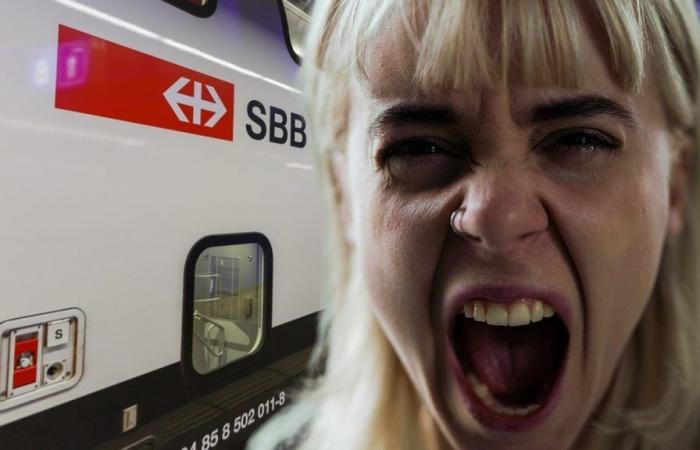Sometimes, asking for money pays off.Image: watson
Public transport passengers have been able to assert new rights for three years in Switzerland. The number of claims for compensation following traffic disruptions is increasing. Compared to Germany, however, these are small amounts.
Pascal Michel / ch media
Until a few years ago, transport companies like the SBB had a free hand. Even in the event of train cancellation or massive delay, they were not required to compensate frustrated passengers for the inconvenience they suffered. They only distributed – at their discretion – only “excuse vouchers”, vouchers for sweets or discounts for drinks.
This has fundamentally changed with the new passenger rightsin force since 2021. Companies can no longer be satisfied with small commercial gestures in the event of delays on the national territory. Just like in the European Union, they have since been required to reimburse 25% of the ticket price in the event of a delay of more than one hour, and 50% from two hours. The compensation must reach at least five francs to be paid.
The Covid trough is felt
If customers initially only timidly highlighted these possibilities, claims for compensation have since grown. The Swisspass Alliance claims to have granted 20,689 compensation worth 254,000 francs last year. A record since the introduction of the new standards three years ago. However, we must take into account the Covid pandemic, which has led to a massive drop in the number of travelers. Only 13,205 requests were paid in 2022, for an amount of 172,000 francs.
Data from the Swisspass Alliance further shows that the sector rejected one in four requests in 2021, the launch year. Over the last two years, it was one in five due to “too little delays, invalid tickets, compensation amounts of less than five francs or deposit deadlines exceeded,” explains a spokesperson. In 2023, most applicants were GA holders, followed by those who purchased individual tickets and day passes.
Few people maintain their complaint after a negative response. This is what a glance at the statistics from the Federal Office of Transport (FOT) reveals. It is he who acts as an appeal body in the event of a dispute. Last year he handled only eleven cases. These were most often delays on international lines.
This low number of complaints allows us to conclude that the CFF and others pay relatively generous compensation. – and that many passengers believe that it is not worth taking steps with the Confederation for a few francs. At the OFT, it is stated that no “appeal procedure has yet resulted in a decision on supervisory rights and that no transport company has therefore been “forced” to compensate anyone”.
Companies had to pay out a quarter of a million francs in 2023 due to train delays and cancellations, without this affecting their finances. For comparison, the CFF alone achieved a turnover of 11.4 billion francs in 2023. Despite a tense financial situation after the Covid crisis, compensation weighs little in the balance. And these low expenses can also be explained by the very high punctuality in our country. Last year, 92.5% of SBB trains arrived at their destination on time, that is to say with a maximum delay of three minutes.
Another atmosphere abroad
In comparison, Deutsche Bahn faces a completely different reality. Punctuality recently reached 64% for mainline traffic. It was therefore necessary to pay very high compensation: in 2023, they totaled a record amount of 132 million francs. The railway company thus loses 2.3% of the turnover generated on these lines.
In Switzerland, the industry had anticipated things. She even initially expected higher amounts. Today, we are within the forecast range. For 2024, transport companies plan to pay around a quarter of a million francs again.
How to be compensated by the CFF
In Switzerland, passengers on the public transport network affected by a delay of more than one hour are entitled to compensation corresponding to 25% of the ticket price. If the delay exceeds two hours, compensation amounts to 50%. Travelers also have the option of canceling their trip completely and, under certain conditions, having the ticket refunded. The claim must be at least five francs. You can find out more here.
Note that subscription holders receive proportional compensation. In addition, compensation may be requested if an international ticket including Switzerland has been purchased. It is always the ticket issuer who is responsible, in accordance with international passenger rights. These rules also extend to passengers on international bus lines, such as FlixBus. In this case, compensation is granted in the event of a delay of more than two hours.
However, according to an official document from the Confederation, the delay criterion does not apply to the entire journey, but only to the delay at departure. Indeed, the arrival time of long-distance buses depends on many external factors, such as traffic, weather, road conditions and even road accidents.
You can find out more here.
(French adaptation: Valentine Zenker)
The news in Switzerland is here
Show all articles






